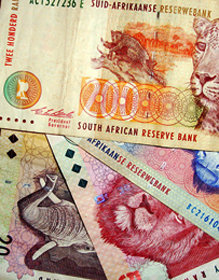
All this “name-dropping” for special favours or contracts or landing rights at air force bases really ticks me off. I assume it’s not against any laws, but the results are so clearly corrupt that it should be. Is it possible to criminalise the peddling of influence? — Friendless in high places
Corruption Watch: Benefit bought or sought is a crime
Dear Friendless
You are right to be angry, but wrong in assuming that this kind of behaviour is not against the law. Influence-peddling is a crime in South Africa. It is called corruption.
The essence of the criminal offence of corruption in our law is the unlawful giving or receiving of gratification. This includes giving, agreeing to give, or offering to give gratification.
Gratification is widely defined so that it includes any kind of benefit. In particular, it is defined to include “influence”.
What this means is that, even if no money changes hands, the giving or offering of any benefit at all (including influence) in exchange for any unlawful benefit that amounts to the abuse of a position of authority is corruption.
It is irrelevant whether the person who influences or offers to influence a matter delivers on the promise.
It is also irrelevant whether he actually has any influence to offer.
This means that it is almost impossible for the events at Air Base Waterkloof in April to have taken place without some of those involved being guilty of corruption.
Any person who gave or offered to give any benefit — including influence — to allow the Guptas to make private use of an air force base for their wedding guests committed the offence of corruption.
We find it difficult to believe that the officials involved would have permitted such a flagrant violation of the law if they were not subjected to coercive pressure or offered significant benefits by those who wanted to make it happen.
Those individuals, and the officials who responded, are likely to be guilty of corruption.
In our view, if the evidence demonstrates this, criminal prosecutions should follow.
A further question is whether President Jacob Zuma bears any moral responsibility for the use of his name to produce special treatment for his friends, the Gupta family.
As far as we know, there is no evidence that the president was aware that his name was used to bring about these results.
But it is deeply worrying that it was possible for the Guptas to flout the law so easily. It indicates that there is a culture in our public service that accords special privileges to those who are connected to powerful individuals.
It is only if officials expect to receive benefits for granting such privileges, or expect to be punished for failing to grant them, that such things can happen.
Otherwise, the Guptas’ requests would have been flatly refused and there would have been no consequences for any official involved.
The fact that the opposite happened shows that at least some of our public servants believe that they are expected to give special treatment to the friends of the president and that they will be punished if they do not.
The question is why do they believe this?
The public statements and behaviour of the president and other members of government make it clear that the Guptas have close ties to the government. The media reported that five cabinet ministers, three first ladies and two deputy ministers attended the wedding despite the controversy.
Mr Zuma has declined to distance himself from the Guptas and defended their direct access to members of his cabinet.
The president and the rest of the government are therefore responsible for the perception that the Guptas are part of his inner circle.
It is not good enough to say that the president’s relationship with the Guptas is a private matter.
This private relationship has been abused with extremely public consequences.
It was the same sort of “friendship” with Glenn Agliotti that led to the former police commissioner, Jackie Selebi, being convicted of corruption three years ago.
• This article was first published in Sunday Times’ Business Times on 30 June 2013.

